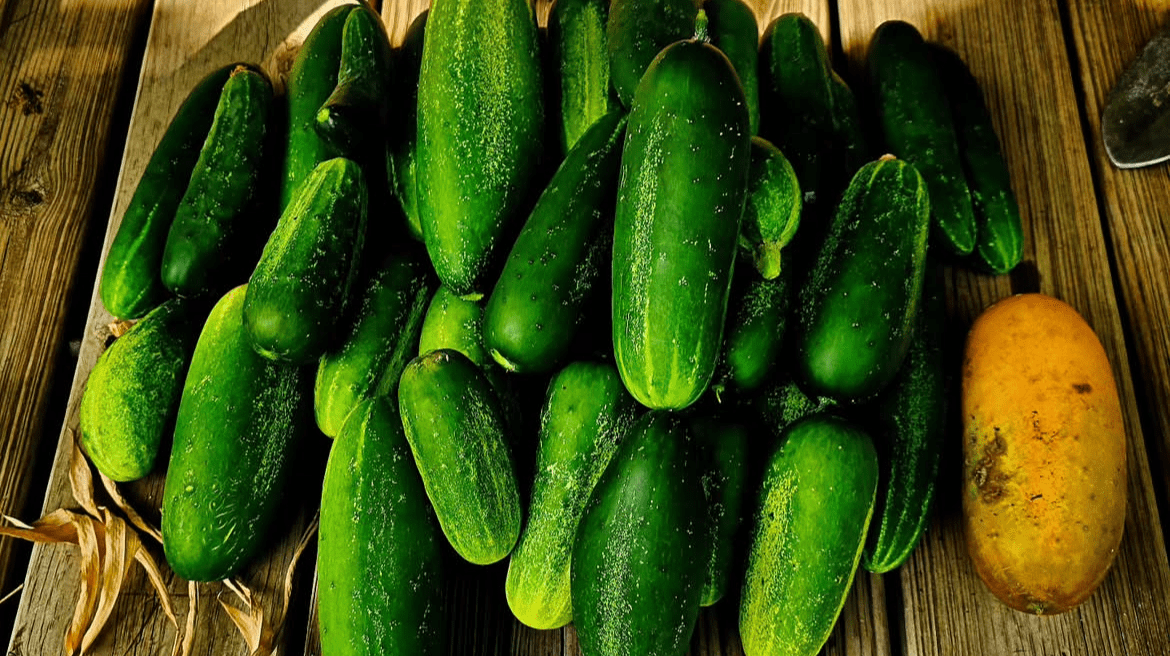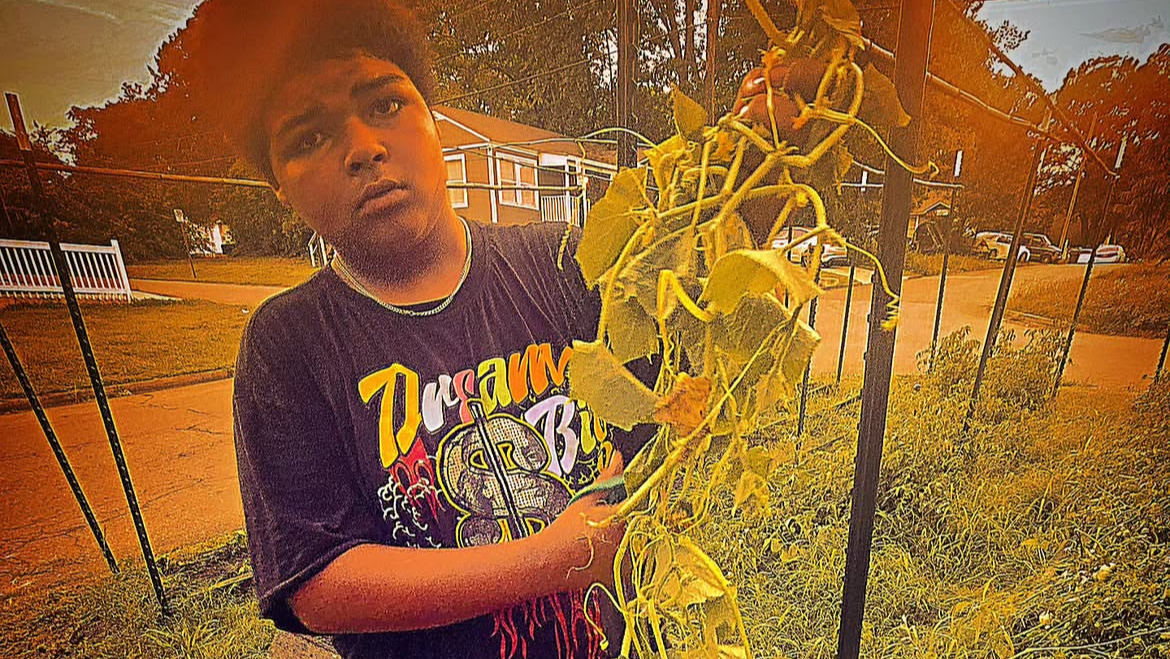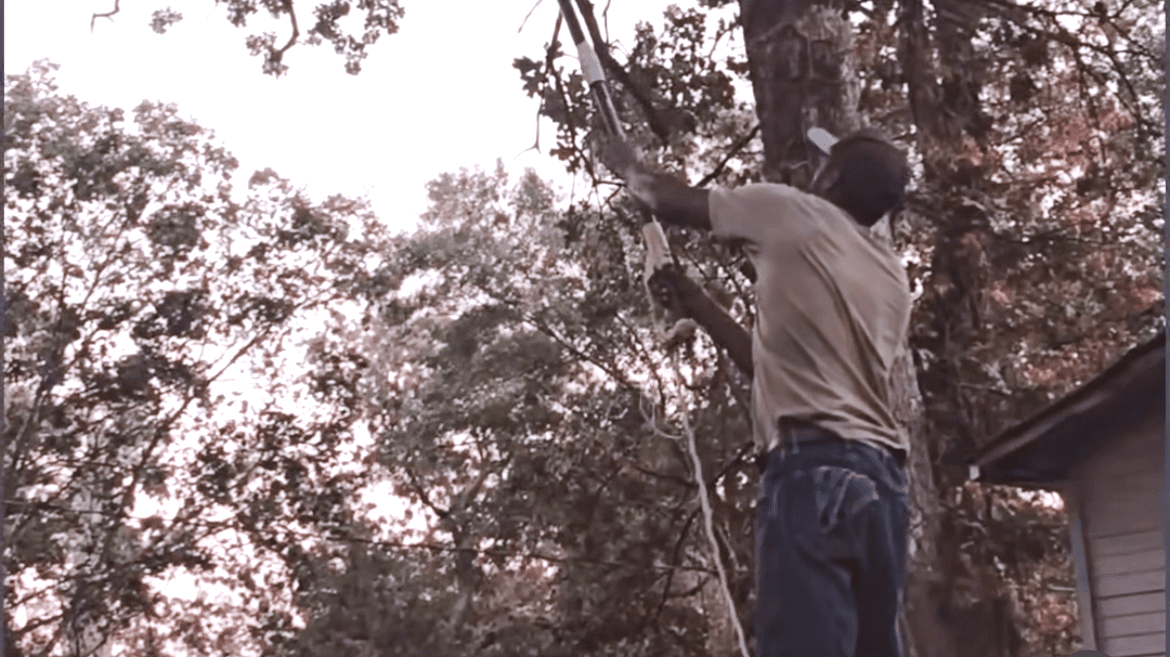By the time the sun hits the edge of the sidewalk in Oak Forest, a neighborhood in southwest Little Rock, Arkansas, the empty lot beside James Allen Jr.’s house doesn’t look like much — just a handful of cleared stumps, squared-off soil beds, and a notebook full of measurements. But to James, it represents something far more important than dirt. It’s the foundation of a farm he’s rebuilding with his own hands.
He’s planting this farm on the land he owns, right next door to his home, where neighbors can see the work he’s putting in, learn from it, and buy from him. It’s not tucked away on borrowed acreage or hidden out of sight. It’s visible, personal, and rooted in the neighborhood that raised him. Every shovel of soil and every cleared stump is an invitation: here is someone doing the work, right where he lives.
And as people began to notice, James started to feel something he had been missing for a long time — momentum.
When the Door Finally Opened
By the time Allen reached out to Communities Unlimited (CU), he was worn down from trying to get funding and resources to get his operation off the ground. He had applied for programs designed to help small farmers and came up empty. He watched ideas get picked up by other organizations and no support. The message he heard most often was simple: no.
So when USDA referred him to CU’s Healthy Foods Team — specifically Coordinator Brenda Williams and Facilitator William Thrasher — he assumed it would be another surface-level conversation that led nowhere.
Instead, they listened.
Allen Jr. explained what he was experiencing: the hurdles, the setbacks, and the discouragement that comes when you try to build something from scratch.
“They encouraged me to keep pushing, build this on my spot, and work with them."
— James Allen Jr.
Williams and Thrasher didn’t put him into a one-size-fits-all plan. They pointed him to people he hadn’t met before: Farm Service Agency contacts, new programs, and funding pathways he had never been able to access. It wasn’t a windfall — it was a starting point.
And for the first time in a long time, he had forward momentum.
A Market Farm Built for Efficiency
Allen isn’t chasing industrial-scale agriculture. His model focuses on market farming — producing high-turnover crops on a compact footprint. Instead of long rows or wide spacing, his beds are 32 inches across and stretch 10 to 50 feet long. The goal is simple: grow fast, harvest often, rotate constantly.

Crops people recognize. Crops people are willing to buy.
He’s not chasing grocery chains or wholesalers right now. His approach is grounded in practicality: grow for the customers who live around him.
“We don’t have a lot of access to fresh produce here,” Allen Jr. said.
His urban lot is USDA-registered. So is the property where his home sits. The farm is built on soil he owns, not borrowed land or grant-dependent space. It’s local, visible, and accountable.
Later, maybe there will be expansion. Maybe nine acres in each county where he grows. But first, he wants to prove the model — right where he lives.
A Grant That Made Real Progress Possible
Through a CU referral, Allen received a key early boost: the Food Positive FENNEL (Food Education for Nutritional Security and Empowerment in Local Communities) Mini Grant, awarded through the University of Arkansas Pine Bluff (UAPB) in partnership with the Arkansas Environmental Education Association (AEEA).

The funding allowed him to buy tools and materials he didn’t have before. That sparked action: he used the tools to remove a massive tree on his farm, then a row of trees along the side of the lot, and then several overhanging limbs that blocked sunlight and stunted growth.
“I feel great,” Allen Jr. said. “Now the lot is fully cleared. We’re now working on removing the stumps.”
Between this grant and a previous one, Allen now has nearly everything he needs to fully relaunch the farm in 2026.
Building Skills and Culture
CU’s role hasn’t been just financial. Williams and Thrasher continue checking in weekly, sharing leads, walking through paperwork, and pointing him to new opportunities. One of those connections opened the door to something unexpected: teaching farm skills to youth at a local Boys & Girls Club.

His nonprofit, called The Empire of Monarch Blackturalism, blends three disciplines: farming, pottery, and classical music — including performances on a square grand piano.
He envisions more than a field. He imagines a building where families gather, where local kids learn to grow vegetables, and where they see options they’ve never been offered.
“I didn’t have those opportunities growing up,” he said. “If I can expose them earlier — teach them healthy lifestyles, get them eating fresh vegetables — they’ll have a head start.”
What Real Support Looks Like
Allen Jr.’s work with Williams and Thrasher is ongoing. They strategize, share resources, and look for programs that match his goals.
“The biggest thing is the support,” Allen Jr. said. “I was at the point where I was done applying for anything — it felt like bigger organizations always win.”
Many small farmers understand the pressure of trying to compete with larger entities. CU didn’t make every obstacle disappear, but they did something that matters: they stayed engaged.
“They’re teaching me how to access resources so we can keep the funding in our community instead of having organizations take it right back out,” he said.
Farming as Recovery
Standing in Oak Forest, with freshly exposed soil and sunlight reaching ground that was shaded for years, Allen isn’t counting success in harvest totals.

It’s slow work — the kind that rarely goes viral or fills grant reports. But every swing of the axe is progress.
“This keeps me going,” he said. “And CU is genuinely helping me move forward.”
For a young farmer who once considered walking away, the difference is no longer theoretical. It’s visible, measurable, and grounded in the land beneath his feet.

